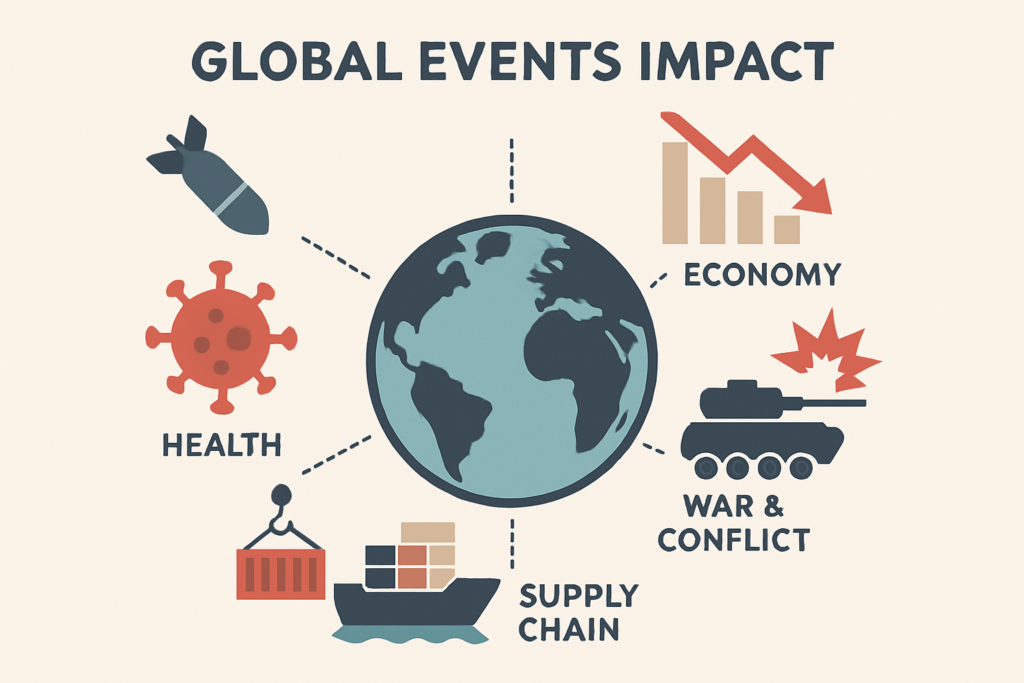The Impact of Economic Changes on Business Operations
- Set the scene: Markets are never static. Businesses ride the wave of financial ups and downs.
- State the focus: How economic changes business in 2025 and what leaders must watch for.
- Tone brief: Straight to the point, minus the fluff.
The Impact of Economic Changes on Business Operations
Markets don’t stand still. They lurch, stumble, gather speed unexpectedly. Every swing—up or down—puts new pressure on how companies operate. In 2025, the story isn’t just about broad trends, but about how daily business gets upended by shifting financial ground. Survival means keeping pace.
The focus: How economic changes business right now. Interest rates, labor costs, global disruptions—they pull the strings on decisions big and small. It’s not just CEOs who need to care. Operations managers, HR, even marketing teams—they all get jolted.
Clarity is power. In the year ahead, leaders who stay sharp and watch the horizon will have the edge. Know where the waves are coming from. Be ready to adjust, cut, expand, or pivot. That’s how businesses endure, no matter what the numbers say.
What Happens After Winning Millions?
Winning a life-changing lottery jackpot is every player’s dream, but few are prepared for what comes next. Let’s explore the various aspects and challenges that lottery winners often encounter after their big win.
Financial Management: A Pressing Challenge
The sudden influx of wealth brings both excitement and numerous challenges:
- Tax Implications: A significant portion of the winnings is often claimed by taxes. Without proper planning, winners can face unexpected financial burdens.
- Investment Decisions: Hiring a financial advisor can be beneficial, yet some winners struggle with reckless spending, depleting their fortune rapidly.
- Future Budgeting: Proper money management is crucial to ensure the longevity of the newfound wealth.
Lifestyle Changes: Embracing Luxury
The transition to a life of luxury often occurs immediately:
- Purchasing Power: Luxury homes, exotic cars, and extravagant vacations become a reality.
- Social Dynamics: Old friends and distant relatives might reappear, causing tension as they seek financial help.
- Privacy Concerns: Peace and solitude may be disrupted as winners become the center of media and public attention.
While some embrace the limelight, others opt for a more low-profile existence to avoid pressures that accompany wealth.
Philanthropy and Legacy Building
Beyond personal enrichment, some winners choose to make a difference:
- Charitable Contributions: Winners often donate part of their winnings to charities and community projects.
- Community Initiatives: Stories abound of winners funding scholarships, launching nonprofits, or revitalizing neighborhoods.
- Business Ventures: Investing in businesses not only fosters personal growth but also benefits the community economically.
Conclusion: The Lasting Impact
The manner in which lottery winners handle their newfound wealth determines not just their personal future, but the legacy they leave behind. Successful management can lead to enduring prosperity and societal contribution, while poor financial decisions can quickly transform dreams of endless riches into a financial nightmare.
How Businesses Tweak Daily Operations
When the numbers shift, companies don’t sit still—they recalibrate fast. First move: cut costs where you can without killing momentum. That could mean pausing on non-essential projects, renegotiating supplier deals, or pushing for better payment terms. Many businesses are trimming inventories and tightening supply chains in response to the latest volatility—a direct echo of this year’s economic impact on operations.
Workforce strategy changes too. Some companies freeze hiring or redeploy staff into critical roles to make the most of the talent they have. Others, especially smaller businesses, might shorten workweeks or go for more contract labor to keep things flexible. The financial shifts in business can force tough choices, but agility is key.
Budgeting and forecasting need sharper eyes in these times. Leaders are updating their numbers more often, running scenarios, and planning for quick pivots if the economy zags again. Cash flow is king; tracking it tightly means survival.
Bottom line: whether you’ve got ten employees or ten thousand, smart adjustments to daily routines aren’t optional—they’re a must when economic trends head for uncharted territory.
Regulatory Changes and Industry-Specific Responses
Rules change. Businesses adjust, or they get left behind. When there are new tax codes, compliance rules grow teeth, or environmental laws tighten, companies have to move fast—whether they like it or not.
Let’s take banking. Regulatory blocks and green finance rules force banks to rethink risk and how they lend. Healthcare? One policy tweak and reimbursement models flip, pressuring hospitals to tighten up on paperwork and patient data. In energy, sweeping emissions caps and tougher reporting standards push utility companies toward renewables, even if the upfront cost stings.
Bottom line, these regulatory shifts aren’t happening in a vacuum—they collide with financial shifts in business, making leaders juggle more variables than ever. The economic impact on operations is direct: sudden compliance costs, surprise audits, fresh legal headaches. Sometimes it’s subtle, like reworking a product line to stay inside new limits.
Want a breakdown of the latest shifts and what they mean for your industry? Check out breaking down recent regulatory changes. One article, less guesswork.
What to Watch: Navigating the Next Wave
If you run a business, here’s the short list: stay nimble, keep an eye on real-time data, and always plan for “what if” scenarios. Economic trends move fast—sometimes overnight—and those who hesitate get left behind. Check figures weekly, not quarterly. Diversify suppliers if you can. Build a flexible workforce strategy.
Lean on digital tools. Modern dashboards and data analytics aren’t just nice to have; they help you spot shifts early, so you aren’t caught off-guard. Use scenario planning: map out best-case, worst-case, and most-likely situations. Move quick to trim the fat in budgets or expand when you see tailwinds. When in doubt, stay close to your numbers and keep the feedback loop tight with your team.
Bottom line: businesses that combine tech with old-fashioned readiness are primed to ride out storms—and might even find new opportunities in the chaos.
Further Reading and Ongoing Insights
Change doesn’t hit pause—and neither should your learning. If you want to keep your finger on the pulse, make it a habit to check in with reliable sources and industry updates. Markets, rules, and financial landscapes can shift fast. Want global case studies or deep dives? Head over to the FT’s economic impact coverage. Want something closer to home? Bookmark local business bulletins or subscribe to relevant newsletters. Bottom line: the more you know, the quicker you can pivot when the next shift rolls in.
Conclusion: The Only Constant Is Change
Here’s the bottom line: economic changes aren’t just hurdles—they’re opportunities. The companies that succeed aren’t the ones stuck in old ways, but those that watch where the winds are blowing and pivot fast. Financial shifts in business aren’t going to slow down. Markets favor the alert, the prepared, and those comfortable making moves in uncertain times. Adapt, adjust, and keep your strategy crisp. That’s how you survive—and win—no matter what the economy throws your way.



